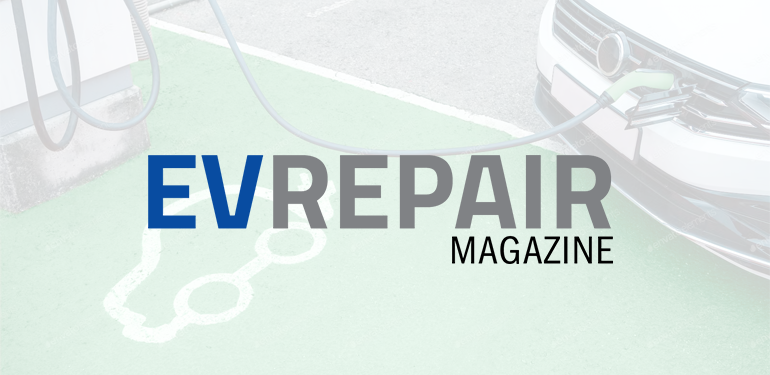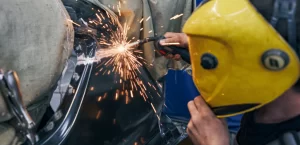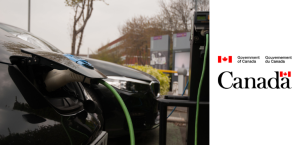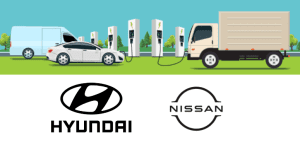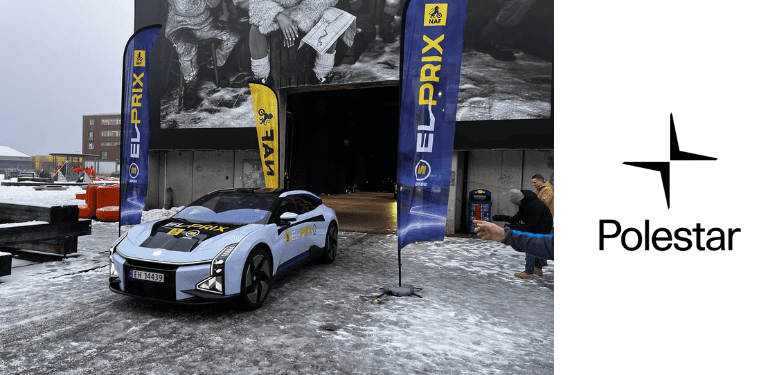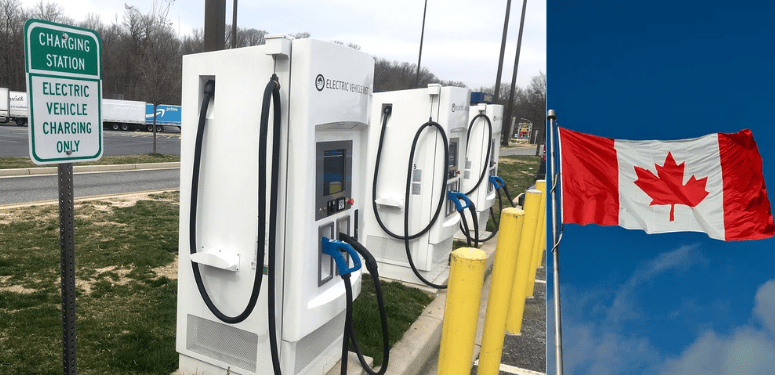Toronto, Ontario — This year electric and autonomous vehicles continued to make a splash in Canada’s automotive sector.
The most promising news for EV-lovers came alongside Unifor’s autumn negotiations, where the union was able to secure five new electric Ford models to be built at its Oakville, Ont. plant. FCA made similar, albeit smaller announcements in its own negotiations with the union.
Take a look through our top EV/AV Reports to see how the sector thrived this year!
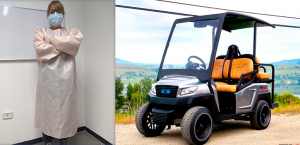
A step for Simolo
Simolo Customs, a small golf kart manufacturer based in British Columbia, has received approval to build a low-speed, street-legal electric vehicle.
This week, Simolo, of Vernon, B.C., said Transport Canada gave it the green light following five years of planning and development. The company builds low-speed vehicles—essentially hi-tech golf karts featuring built-in safety features and modern looks.
“There are certain criteria required by Transport Canada, and some of that is signal lights, headlights, tail lights, they want seat belts on the vehicle, a DOT-approved windshield and rear-view mirrors, ” Jeffery Holomis, CEO and owner of Simolo Customs Ltd., told Global News, adding that low-speed vehicles have a maximum speed limit of 40 km/h.
According to the company, Vernon will be the first Canadian-crafted low-speed EV. Holomis says the vehicles have a range of uses and communities from coast to coast have adapted Simolo’s low-speed vehicles for municipal operations.
Electric bailout
An open letter from Ottawa’s Pembina Institute is urging federal and provincial and the provinces to look at electric vehicle production as one of the pillars for rebuilding Canada’s economy post-COVID-19.
The opinion piece, published by Pembina Institute’s Ontario regional director Carolyn Kim, said an analysis by Navius Research Inc. estimated the sector could grow to a size of $152 billion in GDP and employ 1.1 million people by 2040—but that’s only if a “strong national zero-emission vehicle policy framework” is in place.
The focus on electric and zero-emission vehicles, Kim said in her report, comes from the fact that Canada needs to find sectors to grow where there’s long-term potential and insulation from future economic shocks after COVID-19 has passed. One key method, Kim noted, is to “future-proof” Canada’s sizeable but shrinking auto manufacturing sector with electric and hydrogen fuel cell expertise.
“The future is clearly electric — globally, light-duty electric vehicle sales have grown over 60% a year since 2012,” Kim’s report said. “But Canada only produces one plug-in vehicle model, which accounts for less than half a percent of domestic light-duty vehicle production.”
That one current passenger vehicle model is the Chrysler Pacifica PHEV being manufactured at Fiat Chrysler Automobiles’ Windsor Assembly.
Kim added, however, that Quebec is home to several heavy-duty electric vehicle producers. B.C., meanwhile, has a small group of companies such as Vancouver’s Electra Meccanica (three-wheel single-occupancy vehicle) and Parksville’s Canadian Electric Vehicles Ltd. (industrial vehicles and conversion kits).
“The foundation for growth is already laid,” she said, adding hydrogen vehicles comprises another part of the equation. “With hydrogen and fuel cell companies already in British Columbia, Alberta, Manitoba, Ontario, and New Brunswick, the potential for job growth across the country is ample.”
Airbag alterations
After partnering with 3M to produce respirators in response to shortages caused by coronavirus, Ford has doubled down on its relief efforts and is now using airbag material to manufacture hospital gowns for front line workers.
The automaker is using the fabric—nylon 6,6, which is said to be highly fluid-resistant and lightweight—to craft more than 1.3 million gowns by July 4.
As of April 19, Ford hopes to have production increased to a rate of 75,000 gowns per week, gradually accelerating to a rate of 100,000 gowns per week.

Canadian Tire’s contribution
Canadian Tire will be adding nearly 300 EV chargers at retail locations across the country by the end of 2020.
The Canadian retailer is working alongside FLO, Volkswagen Canada subsidiary Electrify Canada, Natural Resources Canada and Tesla to install a total of 240 fast chargers and 55 Level 2 chargers at 90 Canadian Tire locations across Canada.
While none of the companies involved have revealed the cost of the network, the federal government has announced it will be spending $2.7 million to build 54 of those EV chargers across central and western Canada in an effort to increase EV sales.
Once completed, Canadian Tire’s network will be one of the largest in the country.
Subaru sets a strategy
Subaru has set a target to sell only EVs worldwide by the first half of the 2030s, according to Reuters.
The automaker plans to develop a so-called “strong hybrid” vehicle using Toyota technology and intends to debut the vehicle later in the decade.
By 2030, at least 40 percent of Subaru’s cars sold worldwide will comprise battery electric vehicles or hybrids, according to the automaker.
America’s autonomous action
On Jan. 8, the United States unveiled an updated non-binding federal policy for autonomous vehicles, which continues to take a hands-off approach to the regulation of such vehicles in the U.S.
The policy, titled Ensuring American Leadership in Automated Vehicle Technologies 4.0, establishes federal principles for the development and integration of automated vehicles with a focus on three broad areas: prioritizing and security, promoting innovation and ensuring a consistent regulatory approach. It also outlines ongoing efforts to support autonomous vehicle technology growth and leadership as well as prospects for collaboration, such as federal investment in the sector and resources for the public, developers, and researchers.
According to the updated policy document, “the U.S. Government will provide policies, guidance, and best practices; conduct appropriate research and pilot programs; and offer necessary assistance to help plan for and invest in a dynamic and flexible future for all Americans.” The document emphasizes that the government will enforce existing laws to ensure companies refrain from making misleading claims about the capabilities or limitations of autonomous vehicle technology.
AV 4.0 reaffirms that the U.S. government will promote regulatory consistency among stakeholders, and it builds on the prior policies by describing how specific departments and agencies contribute to and play a part in implementing these guidelines.
According to industry analysts, Canadian regulators could soon take a similar approach.
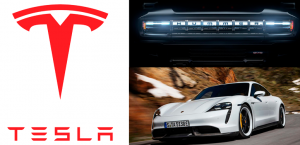
Delayed deliveries
After the Porsche Taycan’s release late last year, sales of the German automaker’s first electric vehicle were a little shocking, with pre-orders exceeding 15,000 units.
Now, with the coronavirus outbreak impacting every industry around the world, Porsche claims the pandemic has complicated deliveries of the Taycan for Canadian and US customers.
From December to March, Porsche reported 350 sales of the Taycan in the U.S. The majority of those—221 units—were during the first quarter of 2020.
Klaus Zellmer, chief executive of Porsche Cars North America told Automotive News that due to the coronavirus, the company’s Zuffenhausen assembly plant in Stuttgart, Germany was shut down, with no Taycan production from April to May.
As a result, Zellmer says Canadian and US buyers may have to wait a little longer to receive their flashy Taycan EVs.
A quiet revolution
GMC has released a sneak-peak of their newest innovation, the GMC Hummer EV.
Announced via a Superbowl ad in February, GMC says the all-electric vehicle will have zero emissions, up to 1,000 horsepower and up to 11,500 Lb.-ft. of torque.
The company says they will continue to provide updates on the vehicle.
Tesla turns down pricing
Tesla has lowered the price of all its vehicles in Canada—after raising them just two months ago.
The price changes are as follows:
- Model 3: The Standard Range Plus dropped from $55,990 to $52,990, the Long Range has dropped $67,990 to $64,990, and the Performance Model 3 has dropped from $77,990 to $74,990.
- Model S: The Long Range Plus now starts at $105,990, down $7,000 from $112,990. The Performance also saw a $7,000 price drop, now starting at $130,990.
- Model X: The Long Range Plus now starts at $112,990, and the Performance version starts at $137,990.
- Model Y: Tesla has kept the price of the Long Range Model Y in Canada at $75,990, and the Performance version at $85,990.
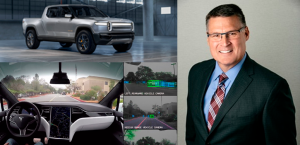
Commitment controversy
Newly-appointed Honda Canada CEO Jean-Marc Leclerc has said that Canada will not meet its greenhouse gas emissions targets in pursuing a zero-emissions vehicle policy alone.
During an interview with the Windsor Star, Leclerc said there is not enough demand for EVs yet for Canada to achieve its GHG commitments to the Paris Accord.
“[The federal government is] not going to achieve it with EVs simply because of cost, and forcing manufacturers to sell them at a loss,” said Leclerc.
“Nobody wants to talk about how much this costs and what people are prepared to pay. They’re just forging forward thinking we have all the solutions and we don’t. That’s why we’re really concerned about governments putting out more zero-emission mandates that will not really achieve a great deal of GHG reduction in the short term.
Leclerc said only about two percent of the 28 million vehicles on the road in Canada are EVs.
Currently, the federal government aims to have five to 10 percent of all new vehicle sales be zero-emission vehicles by 2030 with 100 percent of new sales being zero-emission by 2040.
He said Honda Canada has been pushing the federal government to take a more balanced approach to reduce GHGs. He said it will also be a mistake to have politicians dictate technological solutions to manufacturers.
“In our discussions with the government we basically tell them just give the GHG reduction targets you’re looking for and let us figure out how to achieve them,” he said.
Pay as you drive
Last week Tesla CEO Elon Musk confirmed that the company is working on a new pay-as-you-go subscription plan for its ‘Full Self-Driving Capability’ package, which currently boasts a $9,200 price tag in Canada.
During Tesla’s quarterly earnings call on Apr. 30, Musk said the system could become available to customers as a monthly subscription service later this year.
Musk recently said the current $9,200 price tag is likely to increase on July 1, though it did not provide an estimated cost for the monthly subscription.
Last year, Tesla released its Full Self-Driving Capability package on its app and made it available for purchase through a one-click process—spurring accidental purchases and complaints from Tesla owners worldwide.
The package is designed to enable a vehicle to conduct short and long-distance trips with no action required by the person in the driver’s seat.
Electric abandon
Ford and Rivian have abandoned plans to develop an all-electric model for the Lincoln brand, citing the ongoing pandemic as a concern.
Lincoln’s dealers were informed of the decision last Tuesday. Officials said it still plans to have its own EV eventually and could potentially pursue a product with Rivian in the future, but it was shelving the project due to the “current environment.”
“Our strategic commitment to Lincoln, Rivian and electrification remains unchanged and Lincoln’s future plans will include an all-electric vehicle consistent with its Quiet Flight DNA,” Lincoln said in a statement.
Announced in January, the EV was to be Lincoln’s first battery-electric model. The company planned to build the vehicle on Rivian’s skateboard platform, but neither company had provided details on what type of vehicle it would be, where it would be assembled or when it would go on sale.
Ford Motor invested US$500 million in Rivian last year.
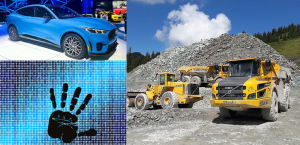
Mustang Mach-E misses
Pricing for Ford’s newest EV, the Mustang Mach-E was announced this week—though the highly anticipated vehicle does not qualify for Canada’s federal EV rebate.
The base price for the Mach-E is set at $50,495, prior to delivery and additional fees.
In Canada, federal rebate-eligible vehicles must have six seats or fewer and a base-model trim with a manufacturer’s suggested retail price of less than $45,000—thus, the Mach-E misses the mark for the $5,000 rebate.
The car will still qualify for provincial rebates in B.C. and Quebec, where owners can receive up to $3,000 and $8,000, respectively.
The Mach-E is Ford’s answer to the waves of automaker electrification and features both a rear-wheel-drive and all-wheel-drive version. It will be built in Mexico and will have a 480-kilometre range.
Autonomous apprehension
Industry experts are concerned that, with the rise of autonomous vehicles, hackers could be launching more frequent small-scale attacks on cars with self-driving technologies.
While a massive, nation-sweeping attack is unlikely, smaller-scale attacks on connected cars are becoming a growing concern, says Josipa Petrunic, CEO of the Canadian Urban Transit Research and Innovation Consortium (CUTRIC).
“The bigger concern would not be one virus taking us all down, but a whole host of viruses and a whole host of malicious attacks taking down a whole bunch of connected devices,” said Petrunic.
Petrunic said, as more vehicles are able to communicate with the internet—and eventually, each other, and to traffic lights and roads using 5G data—all of these points of communication could potentially become sites for malicious attacks.
Charles Eagan, chief technology officer at BlackBerry, said some organizations are already conducting vulnerability assessments on vehicles to make sure they are secure against cyberattacks.
Eagan said Canada is pushing to create cybersecurity standards for internet devices—including cars, adding that there is not a clear standard established yet.
A 2018 Senate report on the future of automated vehicles said that, “without strong safeguards in place, cyberterrorists could take control of Canadian cars from halfway across the world.” IT suggested Transport Canada “urgently develop vehicle safety guidelines for the design of automated and connected vehicles” and develop cybersecurity protocols for the transportation sector.
Mining for Mother Nature
The Canadian government recently announced it will introduce tax write-offs for all-electric off-road vehicles and other automotive equipment in an effort to reduce carbon emissions in the country’s mining sector.
The write-off will allow companies to expense the full cost of the equipment the year that it is put in use. Prime Minister Justin Trudeau made the surprise announcement at the annual Prospectors and Developers Association of Canada mining conference in Toronto.
The government first introduced the ability to expense the cost of clean energy equipment at its 2018 Fall Economic Statement, though this did not include most of the electric vehicles used in mines.
The types of available and eligible vehicles are set to expand each year, and the program specifies that the 100 percent write-off will be available for vehicles that will be used before 2024. It is expected to cost around $62 million over the next five years.
Prime Minister Trudeau also gave shout-outs to several Ontario mining companies pursuing sustainable endeavours. He mentioned Goldcorp’s Borden mine in Chapleau, Ont.—Canada’s first all-electric underground mining project—as well as MacLean Engineering’s environmental efforts as it develops its electric mining vehicles.


